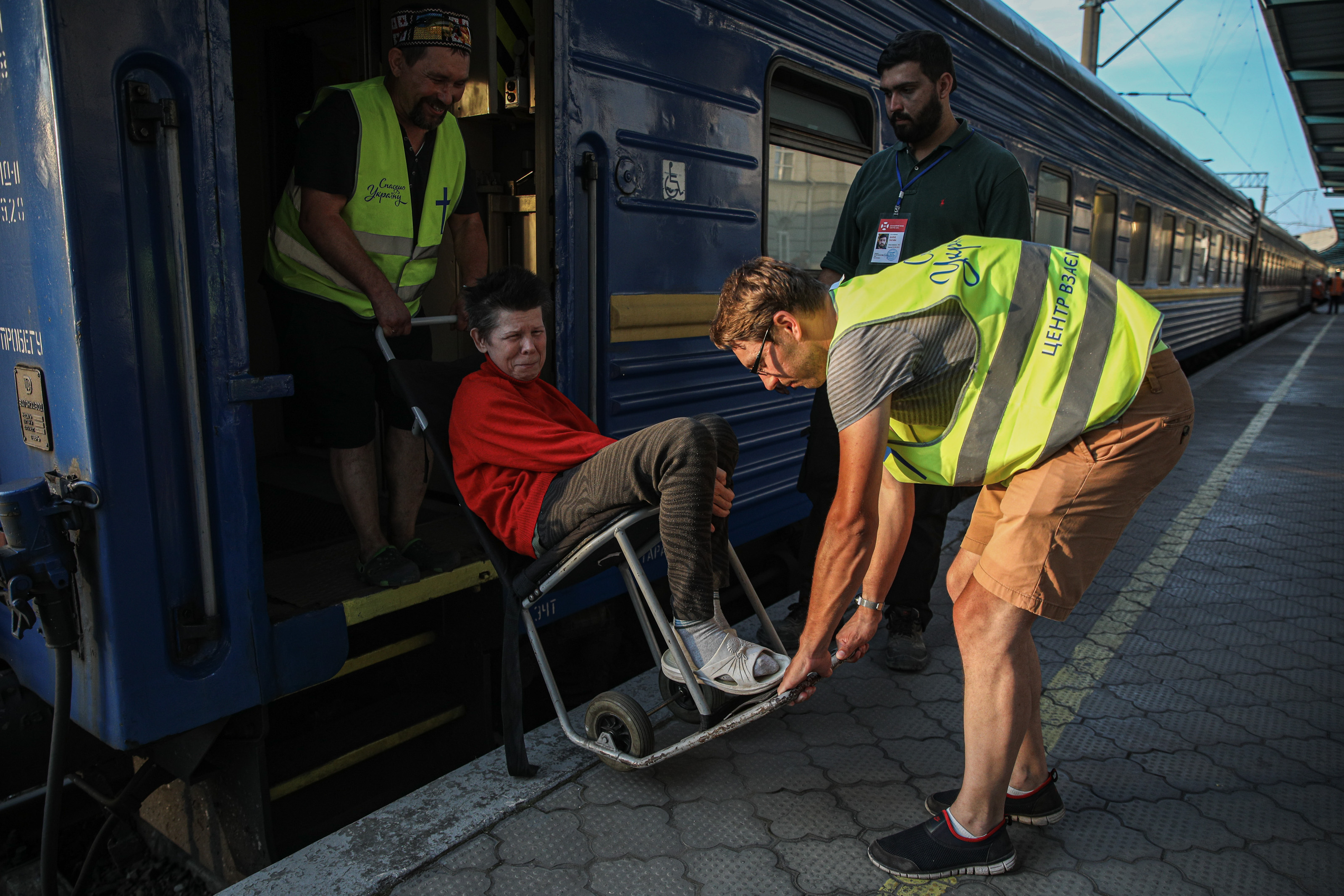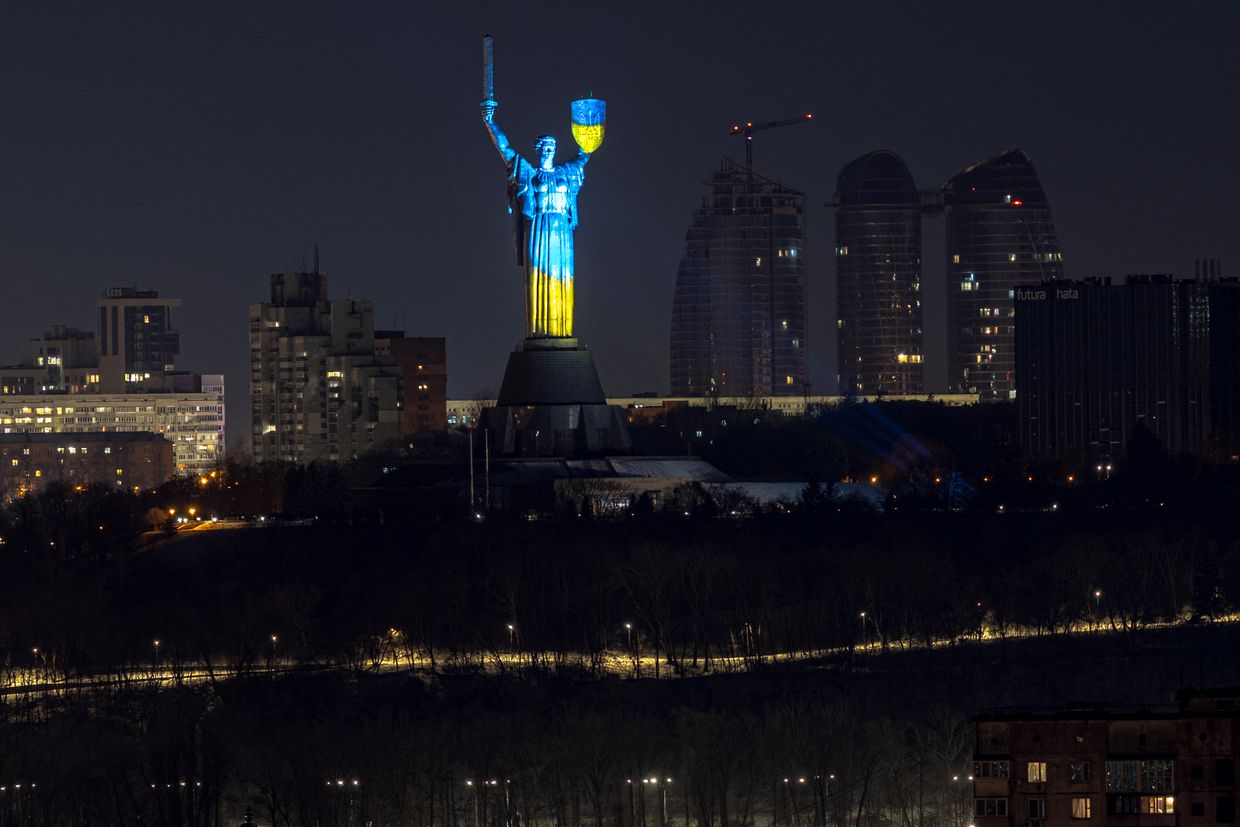On a cold day in March, Vitalii Pcholkin, who uses a wheelchair, lay under three blankets, unable to warm up.
He and his wife Uliana, also confined to a wheelchair, had been sheltering in their apartment in then-occupied Bucha, a satellite town just northwest of Kyiv. Bucha was cut off from electricity, water, and gas soon after Russia launched its full-scale invasion of Ukraine and occupied several settlements surrounding the capital.
Facing thermoregulation issues due to his spinal cord injury, Pcholkin had immense difficulty handling the cold with no heating at home.
“I was freezing all the time, and I also felt very sick,” he recalled. “I was petrified.”
The couple had learned from a neighbor that there would be a state-organized evacuation from the devastated suburb on March 9. While Russia launched attacks on the day of the agreed-upon evacuation corridor, they decided to try to flee regardless.
The couple escaped Bucha safely and made their way toward Lviv, hoping to restore some semblance of “normal life.”
But achieving this “normalcy” soon proved difficult, as Pcholkin and his family struggled to find accessible housing after they relocated.
There are 2.7 million people with disabilities in Ukraine, according to the European Disability Forum. Moscow’s full-scale invasion has forced thousands of people with disabilities to flee Russian aggression, and many others have struggled to evacuate without proper assistance.
According to the United Nations, Russia’s war has a “disproportionate impact” on people with disabilities, especially children.
A growing list of obstacles
According to Pcholkin, it took him and his family around five months to find “more or less suitable” housing in Lviv. In the interim, they had to live in student dormitories – the accommodation provided by the state.
“Accessible housing is a burning issue even if you’re ready to pay a lot of money – and prices in Lviv are now very high,” Pcholkin told the Kyiv Independent. “I probably went through over a thousand apartments before finding one where we could actually live.”
In Ukraine, many residential buildings were constructed during the Soviet Union without adequate consideration for the needs of those with limited mobility. Many buildings have narrow doors with high thresholds and no wheelchair-accessible provisions.
When Russia’s all-out war started, people with disabilities faced yet another obstacle: a lack of access to shelters amid Russian bombardment.
“I usually don’t react to air raid alerts because, by the time I reach the shelter, the alert will be over,” Pcholkin said.
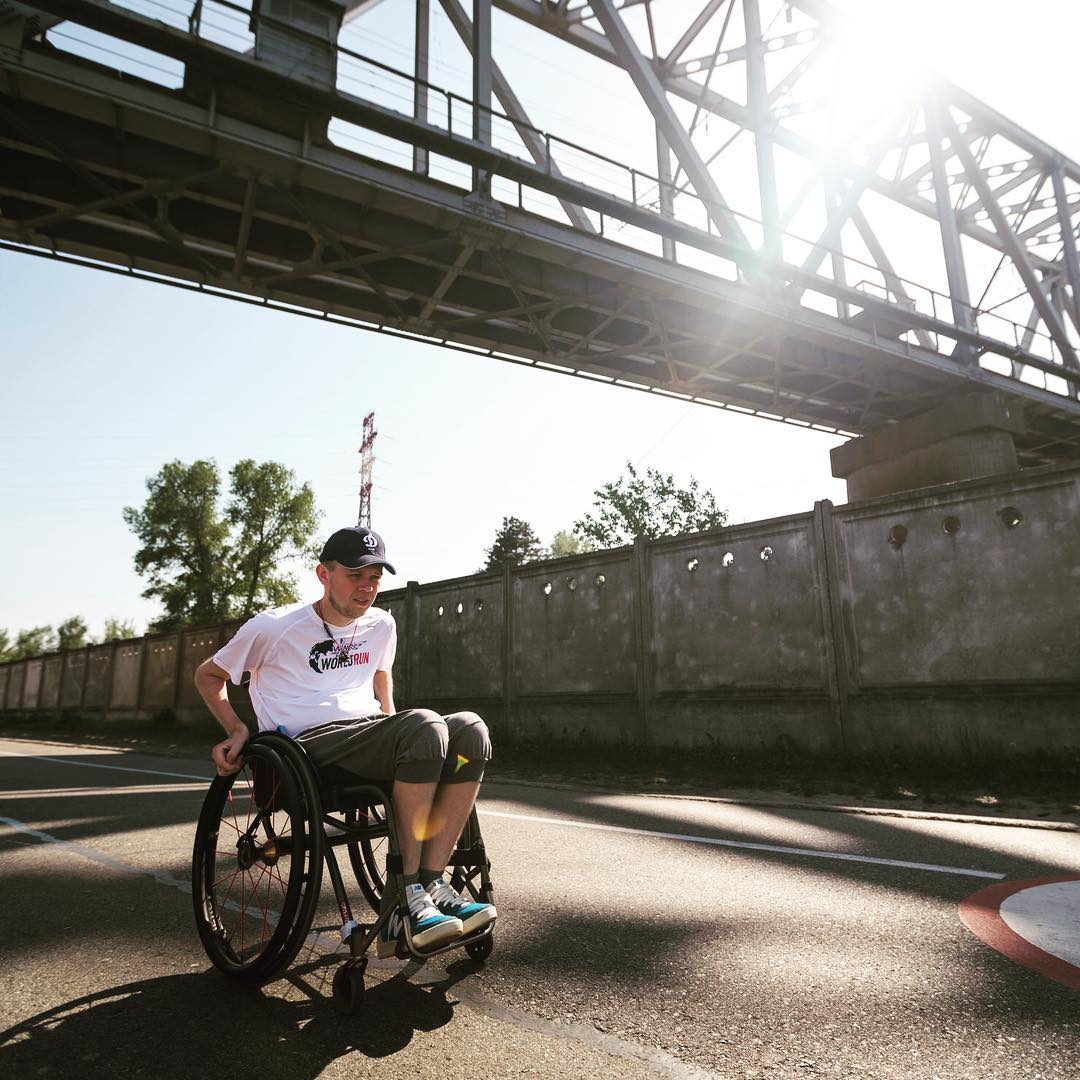
Dmytro Shchebetiuk, the co-founder of the Dostupno.ua initiative, which monitors the accessibility of Ukraine’s infrastructure, told the Kyiv Independent that the vast majority of shelters in Ukraine do not have wheelchair ramps.
As a result, many with disabilities are forced to risk their lives at home during air raid alerts as Russia continues to target civilian infrastructure. Sometimes, they can hide in their bathrooms or corridors – behind two walls, as per Ukrainian authorities’ recommendations – but this is unlikely to be safe should the residential building be directly targeted.
“People in wheelchairs can shelter in some modern parking lots and shopping centers where there is an elevator leading to it, but it is still not the best option, considering the possibility of blackouts and the risk of being trapped there,” Shchebetiuk said.
Experts note that those with hearing impairment often face difficulties with sheltering, as many can not hear the air raid siren.
However, even people residing in specialized care facilities are not safe during the war.
Human shields
Since the start of Russia’s full-scale war, hospitals, nursing homes, and other healthcare facilities have been targeted by Russian attacks.
A Russian attack on a nursing home in Stara Krasnianka, Luhansk Oblast, on March 11 killed 56 people, according to Luhansk Oblast Governor Serhii Haidai.
Yuliia Sachuk, the founder and director of the Ukrainian advocacy group for people with disabilities Fight For Right, said people who live in such facilities are entirely or partially incapacitated, meaning they are unable to make decisions for themselves, and thus their evacuation is the responsibility of the state.
Many activists believe that the Ukrainian government should have organized the evacuation of people with disabilities before Feb. 24, as the threat of Russia’s war loomed imminently.
“Some such institutions were either captured or became bases for Russian soldiers and people were left unprotected,” Sachuk told the Kyiv Independent.
After Feb. 24, the evacuation of people with disabilities not residing in care facilities has primarily been taken up by non-profit organizations.
The Kyiv Independent could not reach Ukraine’s Social Policy Ministry for comment.
The United Nations Committee for the Rights of Persons with Disabilities expressed “grave concern” over the safety of those with disabilities in care facilities in parts of Ukraine where Russian hostilities are ongoing.
During a press conference on Sept. 9, Jonas Ruskus, the UN committee’s vice-chairman, said that at least 12 people are known to have been killed at care facilities in Ukrainian territories occupied by Russia.
Ruskus also said people with disabilities have been “kept in inhuman conditions, subjected to ill-treatment, and used as human shields by the Russian Federation’s Armed Forces.” He added that their evacuation from conflict areas is “not being prioritized.”
Ruskus said reports have also been received about people with disabilities who have been forcibly relocated from Russian-occupied territories to Russia or other occupied parts of Ukraine.
Russia has deported civilians from occupied parts of Ukraine since the start of its full-scale invasion – a war crime.
According to President Volodymyr Zelensky, about 1.6 million Ukrainians have been forcibly deported as of early October. He noted that many were forced to go through Russian forces’ filtration camps, where they were “abused and intimidated.”
Deputy Prime Minister Iryna Vereshchuk added that hundreds of thousands of illegally deported Ukrainians are children.
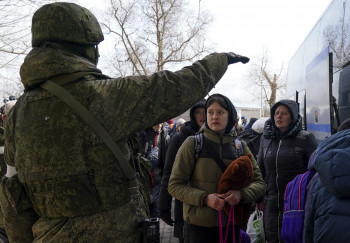
Seeking rehabilitation
According to Pcholkin, the number of people with such injuries is growing exponentially due to Russia’s attacks, although access to necessary rehabilitation is “worse than ever.” Pcholkin is also the chairman of the Active Rehabilitation nonprofit, which focuses on helping integrate people with spinal cord injuries within society.
“After getting injured, people are often being stabilized at hospitals and then discharged,” he said. “Many of the state institutions that were involved in rehabilitation before the war stopped providing these services,” he said, noting that they were often overwhelmed with the number of patients requiring critical care.
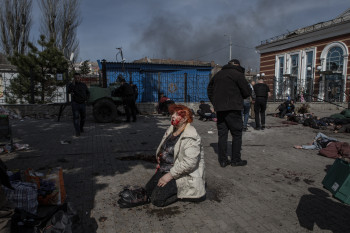
Experts observe that, following Russia’s full-scale invasion, Ukraine’s few rehabilitation centers are unable to deal with demand due to overcrowding.
While some Ukrainians turn to private hospitals for support, many are unable to afford such care. According to the State Statistics Service, roughly 20 days of care costs around Hr 100,000 ($2,730), and the average monthly salary in Ukraine is Hr 14,500 ($400).
Many Ukrainians have also sought rehabilitation services abroad. After Feb. 24, Pcholkin and Active Rehabilitation have supported dozens of Ukrainians in acquiring help in facilities across Europe, especially in neighboring Poland, where many institutions provide care to Ukrainians for free.
However, such programs are often limited concerning the number of patients they can admit from Ukraine, and many people with disabilities struggle to leave Ukraine without assistance to seek help in the first place.
Without proper rehabilitation, those injured risk developing many complications, some of which can not be treated and may be fatal.
“The situation is critical, downright critical,” Pcholkin said.
___________________________________
Note from the author:
Hello! Thaisa Semenova here.
Since the early days of Russia's all-out war, I have been working hard to bring you quality journalism, mainly focusing on civilians affected by Russian aggression. Vulnerable populations, including people with disabilities, are in a particularly difficult position during this war. Their stories need to be told. By supporting the Kyiv Independent you can help us do that.




